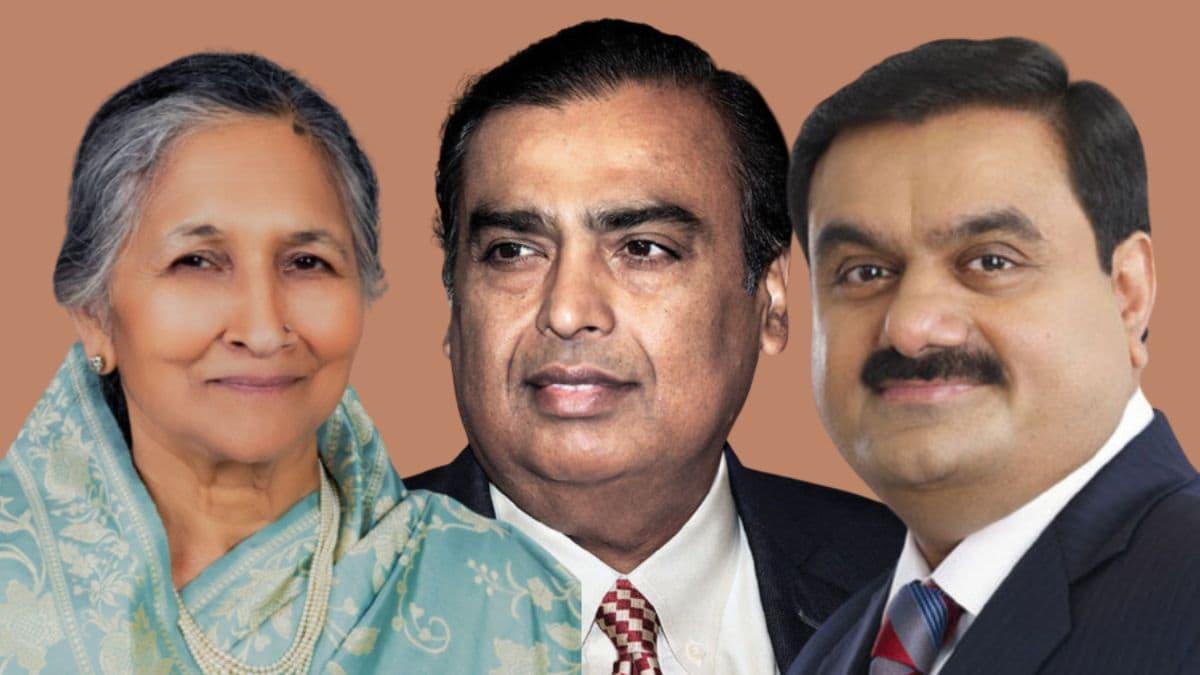When we talk about great achievements and international recognition, the Nobel Prize often stands out as a beacon of excellence. Originating from the will of Alfred Nobel, the inventor of dynamite, this prestigious award has been honouring people from all corners of the world for their outstanding contributions in various fields since 1901. The Nobel Prize is awarded in six categories:
- Peace: This could include efforts in conflict resolution, disarmament and fostering better relationships between nations.
- Literature: This includes not just novelists, but also poets, playwrights, essayists and other writers who have impacted the literary world.
- Chemistry: This category awards individuals who have made significant contributions to the field of chemistry. It includes research and discoveries that have enhanced our understanding of the chemical processes and substances that make up the world.
- Physics: Another important category, this could involve discoveries in fields like quantum mechanics, astrophysics, particle physics, thermodynamics, etc. that contribute to the understanding of the fundamental laws of nature.
- Medicine: Known as the Nobel Prize in Physiology or Medicine, this can include research in biology. The development of new medical treatments or technologies, or significant contributions to our understanding of diseases, the human body and health.
- Economic Sciences: The Sveriges Riksbank Prize in Economic Sciences in Memory of Alfred Nobel, commonly referred to as the Nobel Prize in Economic Sciences, is awarded for outstanding contributions to the field of economics. This can include theoretical advancements, practical applications and work that enhances our understanding of economic relationships, policies and development.
The Nobel Prize holds a special place regarding the achievements of great famous personalities of India. It portrays the rich intellectual and cultural prowess of the country on a global platform. Hence, from writing to the path-breaking scientific research and the promotion of peace, each Indian laureate has added a unique chapter to the legacy of the nation. In this article, we will explore the list of Indian Nobel laureates who have inspired the country.

Nobel Prize and Its Significance in the World

First awarded in 1901, these prizes recognise individuals and organisations that have made significant contributions to humanity, in line with Nobel's vision of rewarding those who benefit mankind.
How it Works
Nobel Prizes are awarded based on the recommendations of specific committees for each category. These committees, comprising experts and previous laureates, review nominations and select winners through a rigorous and confidential process. Nominations are invited from prominent figures in each field, ensuring a diverse and comprehensive pool of candidates.
Each prize includes a medal, a diploma and a monetary award, reflecting the prestige and honour of the recognition. The prizes are presented annually on December 10th, the anniversary of Alfred Nobel's death, in ceremonies in Stockholm and Oslo.
Significance of Nobel Prize in India
The Nobel Prize is a very important and famous award around the world. In India, it is seen as a big honour. In 1913, Rabindranath Tagore won the Nobel Prize for his writing. This was the first time someone from India won and it was a huge deal. It showed that India had a lot of talent in writing and arts.
Many Indians have won the Nobel Prize in different areas like peace, science and economics. This makes people in India feel proud and shows that Indians can be really good at different things. These winners stand as an inspiration for both kids and youths of the country.
Apart from an individual, the Nobel Prize is basically an honour for India on the international platform. While Bharat Ratna is the biggest award in India, the Nobel Prize is another big honour that is not limited to the achievement of an individual but the entire nation. These prizes help India stand a chance to work with other countries on big projects and research.
List of Nobel Prize Winners in India

India has had some amazing people who won the Nobel Prize. These winners have given India an identity for achieving something so great on the global platform. Here are the Nobel Prize Winners in India:
| Nobel Laureate | Year | Citation |
|---|---|---|
| Rabindranath Tagore | 1913 | Tagore was not only the first Indian but also the first person from Asia to win a Nobel Prize. He won it for his book "Gitanjali," which is a collection of poems. Tagore was a great writer, but he was also known for his painting and music. His work is still loved by many people around the world. |
| C.V. Raman | 1930 | Dr. C.V. Raman made a big discovery in physics called the 'Raman Effect.' It is about how light changes when it passes through different things. His discovery was really important and helped other scientists learn a lot about light. |
| Hargobind Khorana | 1968 | Khorana was born in India but was an American citizen when he won the Nobel Prize. He shared it with two other scientists for their work on genetics. They figured out how the code inside our cells works. This was a huge step forward for science. |
| Mother Teresa | 1979 | Mother Teresa was born in Albania but spent most of her life in Kolkata, India. She worked to help the poorest and sickest people. She got the Nobel Peace Prize for her kind and caring work. |
| Subrahmanyan Chandrasekhar | 1983 | Chandrasekhar was an Indian-American who won the Nobel Prize for his work on stars, especially the kind called white dwarfs. His theories helped scientists understand more about how stars change as they get older. |
| Venkatraman Ramakrishnan | 2009 | Born in India, Ramakrishnan later became a U.S. citizen. He won the Nobel Prize for his research on ribosomes, which are tiny parts inside our cells. His work was really important for understanding how cells work. |
| Kailash Satyarthi | 2014 | Satyarthi is an Indian who shared the Nobel Peace Prize with Malala Yousafzai. He was recognised for his hard work in stopping child labour and making sure every child can go to school. |
| Abhijit Banerjee | 2019 | Banerjee, an Indian-American, won the Nobel Prize with his wife and another economist. They found new ways to understand how to help poor people. Their work is helping make the world a better place for everyone. |
What Are Nobel Prize Winners from India Rewarded With?

Here is what the Nobel Prize winners from India receive:
The Nobel Medal
Each Nobel laureate receives a unique medal, the design of which varies based on the category. It is made of gold and its value is significant both in terms of material and symbolic worth.
The Nobel Diploma
Along with the medal, winners are awarded a Nobel Diploma. Each diploma is a unique work of art, custom-made for each laureate. They are often beautifully crafted by some of the top artists and calligraphers of Sweden and Norway, making them a personal and special memento of the achievement of laureates.
Cash Prize
One of the most notable aspects of the Nobel Prize is the significant cash award that comes with it. This amount has varied over the years. As of recent times, each Nobel Prize comes with a monetary award of approximately 1.3 million US dollars (as of 2005).
Benefits and Recognitions
- Besides, the Nobel Prize ceremony is a highly prestigious event. Winners are invited to Stockholm (except for the Peace Prize, which is presented in Oslo) to receive their awards.
- In this grand ceremony, laureates receive their medals and diplomas from the hands of the Swedish King, marking an incredible moment of honour and recognition.
- The Nobel Laureates often experience increased opportunities for research, collaboration and influence within their respective fields.
- The prestige associated with the Nobel Prize opens many doors, enabling winners to further their work and make even greater contributions to their areas of expertise.
List of Indian Nobel Prize Winners and Their Contributions
Now that you already have the list of Indian Nobel Prize winners, here is a brief about these laureates and their journey to win this esteemed prize.
Rabindranath Tagore
Rabindranath Tagore, a multifaceted personality, was a poet, writer, playwright, composer, philosopher, social reformer and painter. Born in 1861 in Calcutta, India, Tagore reshaped Bengali literature and music and Indian art with Contextual Modernism. He founded the Visva-Bharati University and is renowned for his poetic sensibility and philosophical acumen.
- His Nobel Achievement
In 1913, Tagore won the Nobel Prize in Literature for his book Gitanjali, a collection of poems. His work, known for its lyrical beauty and spiritual themes, was deeply rooted in Indian culture yet universal in appeal. Tagore was the first non-European to win a Nobel Prize in Literature and his Nobel recognition brought Indian literature to the attention of the world.
C.V. Raman
Chandrasekhara Venkata Raman, born in 1888 in Tamil Nadu, India, was a physicist renowned for his work in the field of light scattering. Raman carried out groundbreaking experiments in optics and acoustics and his research led to significant discoveries in the field of quantum physics.
- His Nobel Achievement
In 1930, Raman received the Nobel Prize in Physics for his discovery of the Raman Effect. As stated earlier, this discovery, which he made in 1928, explained the change in the wavelength of light when it passes through a transparent medium. The Raman Effect was a fundamental contribution to the understanding of light scattering and had profound implications in various scientific fields.
Hargobind Khorana
Hargobind Khorana was an exceptional biochemist. He was educated in India and England before moving to the United States. He was known for his extensive research in the field of genetics and molecular biology, making groundbreaking contributions that have had a lasting impact in these areas.
- His Nobel Achievement
In 1968, Khorana was awarded the Nobel Prize in Physiology or Medicine, shared with Robert W. Holley and Marshall W. Nirenberg. They were recognised for their research on the interpretation of the genetic code and its function in protein synthesis. His work was pivotal in understanding how the genetic code in DNA dictates the amino acid sequence in proteins, a fundamental process in molecular genetics.
Mother Teresa

Mother Teresa is an Albanian-Indian Roman Catholic nun and missionary who made Kolkata her home. Known for her compassionate work with the poor and the sick, she founded the Missionaries of Charity, a Roman Catholic religious congregation, which had over 4,500 nuns and was active in 133 countries by the time of her death in 1997.
- Her Nobel Achievement
Mother Teresa was awarded the Nobel Peace Prize in 1979. She was honoured for her work in bringing help to suffering humanity, which made her a symbol of charitable, selfless work. She dedicated her life to caring for the destitute and dying in the slums of Kolkata, an effort that grew from a small-scale endeavour to a global mission.
Subrahmanyan Chandrasekhar
Born in Lahore, British India (now in Pakistan) in 1910, Subrahmanyan Chandrasekhar was a distinguished astrophysicist. His academic journey took him from India to the United Kingdom and then to the United States. His work in astrophysics made significant contributions to our understanding of stars, white dwarfs, black holes and other celestial phenomena.
- His Nobel Achievement
In 1983, Chandrasekhar shared the Nobel Prize in Physics with William A. Fowler. His part of the prize was awarded for his theoretical studies of the physical processes important to the structure and evolution of stars. His most notable work includes the Chandrasekhar limit, which predicts the maximum mass of a stable white dwarf star. This work was crucial in furthering the understanding of the end stages of stellar evolution.
Kailash Satyarthi
Born in 1954 in Vidisha, India, Kailash Satyarthi is a renowned activist of children's rights. Satyarthi left a career as an electrical engineer to fight against child labour and advocate for the right to education for all children. He founded the Bachpan Bachao Andolan (Save the Childhood Movement) in 1984, which has since rescued over 80,000 children from various forms of servitude and helped in their successful rehabilitation and reintegration into society.
- His Nobel Achievement
In 2014, Kailash Satyarthi was awarded the Nobel Peace Prize, which he shared with Malala Yousafzai of Pakistan. He was recognised for his tireless efforts in the fight against child labour and his advocacy for the education of children in India. The Nobel Committee highlighted his role in leading various forms of protests and demonstrations, all peaceful, focusing on the grave exploitation of children for financial gain.
Venkatraman Ramakrishnan
Venkatraman 'Venki' Ramakrishnan is a structural biologist. His educational and professional journey took him from India to the USA and the UK. Ramakrishnan is renowned for his research in molecular biology, particularly in understanding the structure and function of the ribosome, a complex molecule that synthesises protein in the cell.
- His Nobel Achievement
In 2009, Ramakrishnan shared the Nobel Prize in Chemistry with Thomas A. Steitz and Ada E. Yonath. They were awarded for their studies on the structure and function of the ribosome. His work involved using crystallography to map the atomic structure of the ribosome. This was a groundbreaking achievement that provided deep insights into how genetic information is translated into proteins, which are essential for life.
Abhijit Banerjee
Abhijit Vinayak Banerjee was born in 1961 in Mumbai, India. He is an economist of Indian origin and a professor at the Massachusetts Institute of Technology (MIT) in the United States. His research has focused extensively on poverty alleviation and development economics, exploring the effectiveness of various approaches to tackling poverty and fostering development.
- His Nobel Achievement
In 2019, Abhijit Banerjee shared the Nobel Prize in Economic Sciences with Esther Duflo and Michael Kremer. They were awarded for their experimental approach to alleviating global poverty. Banerjee and his co-laureates introduced new ways to study the effectiveness of various policies and interventions aimed at improving the lives of the poor.
Their work involved using randomised controlled trials, similar to those used in medical research, to test the impact of interventions in areas such as education, health and access to credit. This approach has significantly improved our understanding of how to best address poverty and has influenced policy and development work around the world.
Summarise with AI:






















